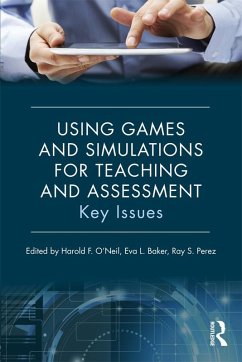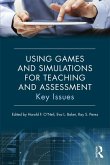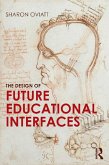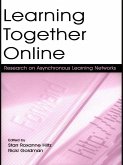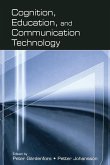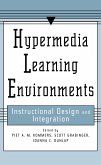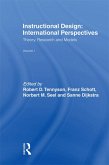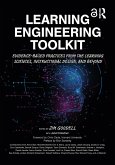Using Games and Simulations for Teaching and Assessment (eBook, PDF)
Key Issues
Redaktion: O'Neil, Harold F.; Perez, Ray S.; Baker, Eva L.
56,95 €
56,95 €
inkl. MwSt.
Sofort per Download lieferbar

28 °P sammeln
56,95 €
Als Download kaufen

56,95 €
inkl. MwSt.
Sofort per Download lieferbar

28 °P sammeln
Jetzt verschenken
Alle Infos zum eBook verschenken
56,95 €
inkl. MwSt.
Sofort per Download lieferbar
Alle Infos zum eBook verschenken

28 °P sammeln
Using Games and Simulations for Teaching and Assessment (eBook, PDF)
Key Issues
Redaktion: O'Neil, Harold F.; Perez, Ray S.; Baker, Eva L.
- Format: PDF
- Merkliste
- Auf die Merkliste
- Bewerten Bewerten
- Teilen
- Produkt teilen
- Produkterinnerung
- Produkterinnerung

Bitte loggen Sie sich zunächst in Ihr Kundenkonto ein oder registrieren Sie sich bei
bücher.de, um das eBook-Abo tolino select nutzen zu können.
Hier können Sie sich einloggen
Hier können Sie sich einloggen
Sie sind bereits eingeloggt. Klicken Sie auf 2. tolino select Abo, um fortzufahren.

Bitte loggen Sie sich zunächst in Ihr Kundenkonto ein oder registrieren Sie sich bei bücher.de, um das eBook-Abo tolino select nutzen zu können.
Using Games and Simulations for Teaching and Assessment: Key Issues comprises a multidisciplinary investigation into the issues that arise when using games and simulations for educational purposes.
- Geräte: PC
- mit Kopierschutz
- eBook Hilfe
- Größe: 5.51MB
Andere Kunden interessierten sich auch für
![Using Games and Simulations for Teaching and Assessment (eBook, ePUB) Using Games and Simulations for Teaching and Assessment (eBook, ePUB)]() Using Games and Simulations for Teaching and Assessment (eBook, ePUB)56,95 €
Using Games and Simulations for Teaching and Assessment (eBook, ePUB)56,95 €![The Design of Future Educational Interfaces (eBook, PDF) The Design of Future Educational Interfaces (eBook, PDF)]() Sharon OviattThe Design of Future Educational Interfaces (eBook, PDF)50,95 €
Sharon OviattThe Design of Future Educational Interfaces (eBook, PDF)50,95 €![Learning Together Online (eBook, PDF) Learning Together Online (eBook, PDF)]() Learning Together Online (eBook, PDF)46,95 €
Learning Together Online (eBook, PDF)46,95 €![Cognition, Education, and Communication Technology (eBook, PDF) Cognition, Education, and Communication Technology (eBook, PDF)]() Cognition, Education, and Communication Technology (eBook, PDF)42,95 €
Cognition, Education, and Communication Technology (eBook, PDF)42,95 €![Hypermedia Learning Environments (eBook, PDF) Hypermedia Learning Environments (eBook, PDF)]() Hypermedia Learning Environments (eBook, PDF)23,95 €
Hypermedia Learning Environments (eBook, PDF)23,95 €![Instructional Design: International Perspectives I (eBook, PDF) Instructional Design: International Perspectives I (eBook, PDF)]() Instructional Design: International Perspectives I (eBook, PDF)59,95 €
Instructional Design: International Perspectives I (eBook, PDF)59,95 €![Learning Engineering Toolkit (eBook, PDF) Learning Engineering Toolkit (eBook, PDF)]() Learning Engineering Toolkit (eBook, PDF)37,95 €
Learning Engineering Toolkit (eBook, PDF)37,95 €-
-
-
Using Games and Simulations for Teaching and Assessment: Key Issues comprises a multidisciplinary investigation into the issues that arise when using games and simulations for educational purposes.
Dieser Download kann aus rechtlichen Gründen nur mit Rechnungsadresse in A, B, BG, CY, CZ, D, DK, EW, E, FIN, F, GR, HR, H, IRL, I, LT, L, LR, M, NL, PL, P, R, S, SLO, SK ausgeliefert werden.
Produktdetails
- Produktdetails
- Verlag: Taylor & Francis eBooks
- Seitenzahl: 336
- Erscheinungstermin: 31. März 2016
- Englisch
- ISBN-13: 9781317814672
- Artikelnr.: 44873989
- Verlag: Taylor & Francis eBooks
- Seitenzahl: 336
- Erscheinungstermin: 31. März 2016
- Englisch
- ISBN-13: 9781317814672
- Artikelnr.: 44873989
- Herstellerkennzeichnung Die Herstellerinformationen sind derzeit nicht verfügbar.
Harold F. O'Neil is Professor of Education Psychology and Technology at the University of Southern California and Project Director at the National Center for Research on Evaluation, Standards, and Student Testing (CRESST). Eva L. Baker is Distinguished Research Professor at the Graduate School of Education and Information Studies, University of California, Los Angeles. She is also co-director of CRESST. Ray S. Perez is Program Officer at the Office of Naval Research (ONR), where he manages a cognitive science of learning research program.
List of Contributors
Preface by Harold F. O'Neil, Eva L. Baker, and Ray S. Perez
Section 1: Theory/Framework/Context
Chapter 1: A Framework to Create Effective Learning Games and Simulations
by Eva L. Baker and Girlie C. Delacruz
Chapter 2: Computational Issues in Modeling User Behavior in Serious Games
by Markus R. Iseli and Rajesh Jha
Chapter 3: A Framework for Validating 21st Century Assessment Tools by Roy
Stripling, John J. Lee, and Joseph V. Cohn
Chapter 4: Intelligent Tutoring Systems, Serious Games, and the Generalized
Intelligent by Arthur C. Graesser, Xiangen Hu, Benjamin D. Nye, and Robert
A. Sottilare
Section 2: Assessment
Chapter 5: Using Crowdsourcing as a Formative Evaluation Technique for Game
Icons by Ayesha Madni, Gregory K. W. K. Chung, Eva L. Baker, and Noelle C.
Griffin
Chapter 6: Lessons Learned From Intelligent Tutoring Research for
Simulation by Ray S. Perez, Anna Skinner, and Paul Chatelier
Chapter 7: Measuring Learning in Simulations and Games by Allen Munro
Chapter 8: The Role of Neurobiology in Teaching and Assessing Games by Ray
S. Perez, Jason Ralph, and James Niehaus
Section 3: Cognitive/Motivational Issues
Chapter 9: Role of Metacognition in STEM Games and Simulations by Richard
E. Mayer
Chapter 10: The Role of Motivation, Affect, and Engagement in
Simulation/Game Environments: A Proposed Model by Robert Rueda, Harold F.
O'Neil, and Elena Son
Chapter 11: Can Games Facilitate Access to College? By Zoë B. Corwin,
Robert W. Danielson, Gisele Ragusa, and William G. Tierney
Section 4: Psychometric Issues
Chapter 12: Inference in Game-Based Assessment by Kristen E. DiCerbo,
Robert J. Mislevy, and John T. Behrens
Chapter 13: On the Role of Multilevel Item Response Models in Multisite
Evaluation Studies for Serious Games by Li Cai, Kilchan Choi, and Megan
Kuhfeld
Index
Preface by Harold F. O'Neil, Eva L. Baker, and Ray S. Perez
Section 1: Theory/Framework/Context
Chapter 1: A Framework to Create Effective Learning Games and Simulations
by Eva L. Baker and Girlie C. Delacruz
Chapter 2: Computational Issues in Modeling User Behavior in Serious Games
by Markus R. Iseli and Rajesh Jha
Chapter 3: A Framework for Validating 21st Century Assessment Tools by Roy
Stripling, John J. Lee, and Joseph V. Cohn
Chapter 4: Intelligent Tutoring Systems, Serious Games, and the Generalized
Intelligent by Arthur C. Graesser, Xiangen Hu, Benjamin D. Nye, and Robert
A. Sottilare
Section 2: Assessment
Chapter 5: Using Crowdsourcing as a Formative Evaluation Technique for Game
Icons by Ayesha Madni, Gregory K. W. K. Chung, Eva L. Baker, and Noelle C.
Griffin
Chapter 6: Lessons Learned From Intelligent Tutoring Research for
Simulation by Ray S. Perez, Anna Skinner, and Paul Chatelier
Chapter 7: Measuring Learning in Simulations and Games by Allen Munro
Chapter 8: The Role of Neurobiology in Teaching and Assessing Games by Ray
S. Perez, Jason Ralph, and James Niehaus
Section 3: Cognitive/Motivational Issues
Chapter 9: Role of Metacognition in STEM Games and Simulations by Richard
E. Mayer
Chapter 10: The Role of Motivation, Affect, and Engagement in
Simulation/Game Environments: A Proposed Model by Robert Rueda, Harold F.
O'Neil, and Elena Son
Chapter 11: Can Games Facilitate Access to College? By Zoë B. Corwin,
Robert W. Danielson, Gisele Ragusa, and William G. Tierney
Section 4: Psychometric Issues
Chapter 12: Inference in Game-Based Assessment by Kristen E. DiCerbo,
Robert J. Mislevy, and John T. Behrens
Chapter 13: On the Role of Multilevel Item Response Models in Multisite
Evaluation Studies for Serious Games by Li Cai, Kilchan Choi, and Megan
Kuhfeld
Index
List of Contributors
Preface by Harold F. O'Neil, Eva L. Baker, and Ray S. Perez
Section 1: Theory/Framework/Context
Chapter 1: A Framework to Create Effective Learning Games and Simulations
by Eva L. Baker and Girlie C. Delacruz
Chapter 2: Computational Issues in Modeling User Behavior in Serious Games
by Markus R. Iseli and Rajesh Jha
Chapter 3: A Framework for Validating 21st Century Assessment Tools by Roy
Stripling, John J. Lee, and Joseph V. Cohn
Chapter 4: Intelligent Tutoring Systems, Serious Games, and the Generalized
Intelligent by Arthur C. Graesser, Xiangen Hu, Benjamin D. Nye, and Robert
A. Sottilare
Section 2: Assessment
Chapter 5: Using Crowdsourcing as a Formative Evaluation Technique for Game
Icons by Ayesha Madni, Gregory K. W. K. Chung, Eva L. Baker, and Noelle C.
Griffin
Chapter 6: Lessons Learned From Intelligent Tutoring Research for
Simulation by Ray S. Perez, Anna Skinner, and Paul Chatelier
Chapter 7: Measuring Learning in Simulations and Games by Allen Munro
Chapter 8: The Role of Neurobiology in Teaching and Assessing Games by Ray
S. Perez, Jason Ralph, and James Niehaus
Section 3: Cognitive/Motivational Issues
Chapter 9: Role of Metacognition in STEM Games and Simulations by Richard
E. Mayer
Chapter 10: The Role of Motivation, Affect, and Engagement in
Simulation/Game Environments: A Proposed Model by Robert Rueda, Harold F.
O'Neil, and Elena Son
Chapter 11: Can Games Facilitate Access to College? By Zoë B. Corwin,
Robert W. Danielson, Gisele Ragusa, and William G. Tierney
Section 4: Psychometric Issues
Chapter 12: Inference in Game-Based Assessment by Kristen E. DiCerbo,
Robert J. Mislevy, and John T. Behrens
Chapter 13: On the Role of Multilevel Item Response Models in Multisite
Evaluation Studies for Serious Games by Li Cai, Kilchan Choi, and Megan
Kuhfeld
Index
Preface by Harold F. O'Neil, Eva L. Baker, and Ray S. Perez
Section 1: Theory/Framework/Context
Chapter 1: A Framework to Create Effective Learning Games and Simulations
by Eva L. Baker and Girlie C. Delacruz
Chapter 2: Computational Issues in Modeling User Behavior in Serious Games
by Markus R. Iseli and Rajesh Jha
Chapter 3: A Framework for Validating 21st Century Assessment Tools by Roy
Stripling, John J. Lee, and Joseph V. Cohn
Chapter 4: Intelligent Tutoring Systems, Serious Games, and the Generalized
Intelligent by Arthur C. Graesser, Xiangen Hu, Benjamin D. Nye, and Robert
A. Sottilare
Section 2: Assessment
Chapter 5: Using Crowdsourcing as a Formative Evaluation Technique for Game
Icons by Ayesha Madni, Gregory K. W. K. Chung, Eva L. Baker, and Noelle C.
Griffin
Chapter 6: Lessons Learned From Intelligent Tutoring Research for
Simulation by Ray S. Perez, Anna Skinner, and Paul Chatelier
Chapter 7: Measuring Learning in Simulations and Games by Allen Munro
Chapter 8: The Role of Neurobiology in Teaching and Assessing Games by Ray
S. Perez, Jason Ralph, and James Niehaus
Section 3: Cognitive/Motivational Issues
Chapter 9: Role of Metacognition in STEM Games and Simulations by Richard
E. Mayer
Chapter 10: The Role of Motivation, Affect, and Engagement in
Simulation/Game Environments: A Proposed Model by Robert Rueda, Harold F.
O'Neil, and Elena Son
Chapter 11: Can Games Facilitate Access to College? By Zoë B. Corwin,
Robert W. Danielson, Gisele Ragusa, and William G. Tierney
Section 4: Psychometric Issues
Chapter 12: Inference in Game-Based Assessment by Kristen E. DiCerbo,
Robert J. Mislevy, and John T. Behrens
Chapter 13: On the Role of Multilevel Item Response Models in Multisite
Evaluation Studies for Serious Games by Li Cai, Kilchan Choi, and Megan
Kuhfeld
Index
